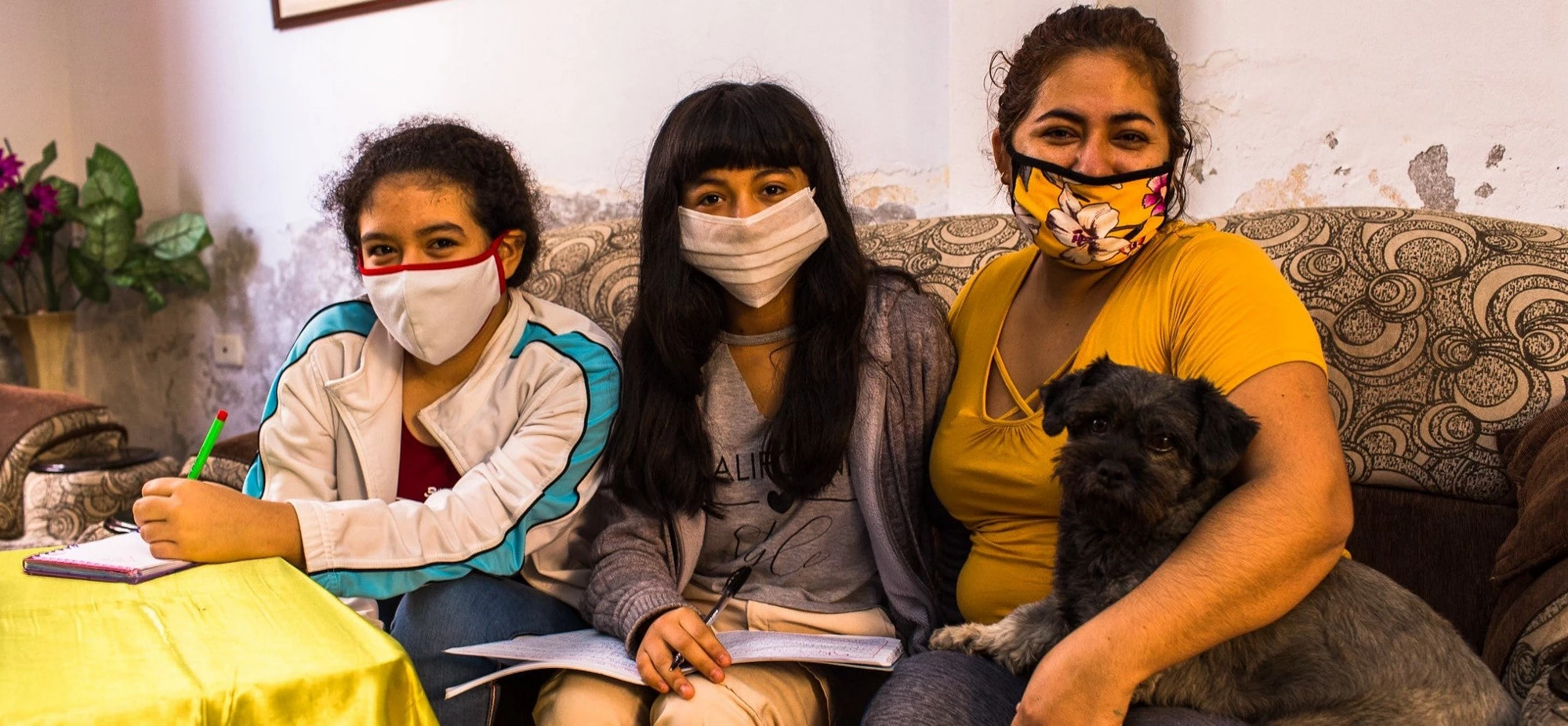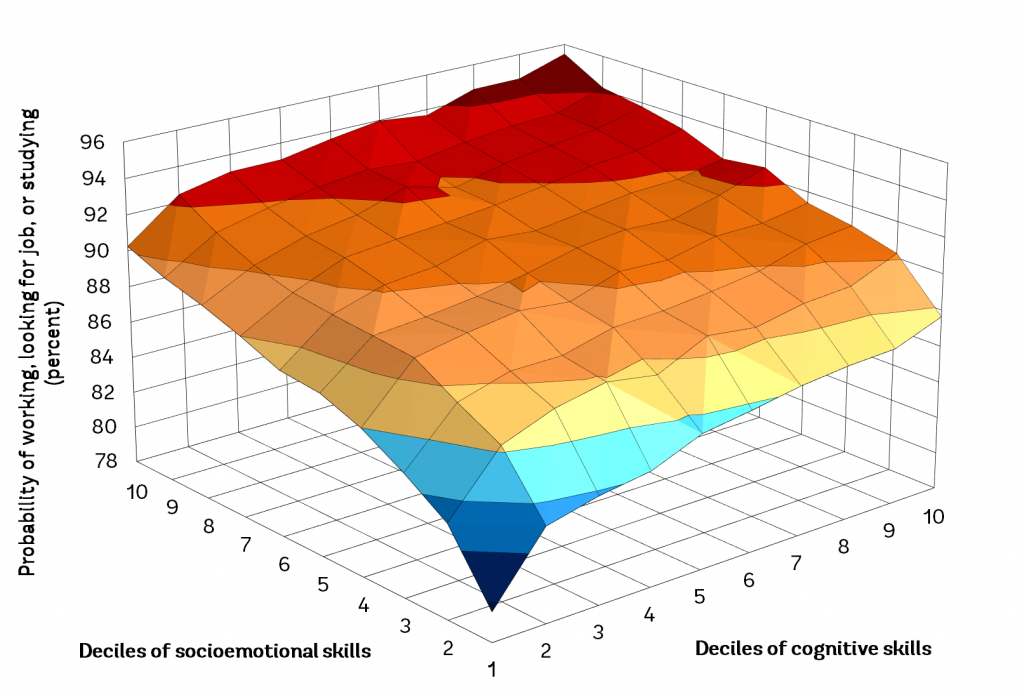 Our study finds that young and adults with higher levels of socioemotional skills are more likely to be doing something to get ahead in the labor market in Colombia.
Our study finds that young and adults with higher levels of socioemotional skills are more likely to be doing something to get ahead in the labor market in Colombia.
This blog post is available in Spanish.
The COVID-19 pandemic has forced many businesses to close, employees to lose their jobs, and street vendors to struggle. Our abilities to manage feelings, to collaborate, and to persevere — our socioemotional skills — can help us navigate some of the turbulent emotional aspects of this crisis. But could they make a difference in a person’s employment situation as well?
Our recently published paper about how people’s socioemotional skills relate to their labor market outcomes in Colombia suggests so.
Socioemotional skills and labor outcomes in Colombia
Our study finds that young and adults with higher levels of socioemotional skills are more likely to be doing something to get ahead in the labor market in Colombia. Those with the highest levels of socioemotional skills (the top ten percent) are 9 percent more likely to be studying, working, or looking for a job than those with the lowest levels (the bottom ten percent). That suggests that the jobless may be more able to carry on searching for jobs and eventually get one. Those working may be more able to keep their jobs.
One reason people with higher socioemotional skills fare better is that those skills are related with getting more education: People with the highest socioemotional skills are 16 percent more likely to have attended tertiary education.
But we’ve found that socioemotional skills matter beyond education, being useful in themselves for working and search for jobs. Even when considering people at equal levels of education, the link between socioemotional skills and outcomes remains almost the same. Similarly, another study shows that students who hold equal tertiary education degrees but have higher socioemotional skills earn more in Colombia.
Rather than being substitutes, cognitive (mental abilities) and socioemotional skills work best as a pair. People with the highest levels of both types of skills do better than those who have the highest levels in one type or the other, including being more likely to hold a formal job and jobs requiring a graduate education. The figure below shows that those in the top levels of both types of skills (in the tenth decile, the redder top tip) are virtually all studying, working, or looking for a job, which is 25 percent more likely than those in bottom levels of both (the first decile, the bluest bottom tip).
Figure 1. Higher cognitive and socioemotional skills are both associated with higher probability to work, look for a job, or study in Colombia (2012)

Source: Acosta, Muller, and Sarzosa (2020).
Unfortunately, our study cannot discard that better outcomes also cause higher skills and thus perhaps overestimates the influence of skills on outcomes. That said, our finding that socioemotional skills as a broad skills group are linked with doing better in the labor market in Colombia is consistent with other studies, which have focused primarily on high-income countries.
Socioemotional learning for today and tomorrow
If socioemotional skills seem to help people find and keep good jobs, what type of policies can foster them?
Since socioemotional development is a cumulative process, learning them explicitly and continuously from early childhood on and at school is ideal. All children practice them in their relationships and the situations they face, but a range of specific programs can help foster them at school. When schools reopen, such programs can help students recover from their losses of learning and socialization.
There’s less research on how to help adults gain more of these skills. One way is to teach them as part of a vocational training. While this type of program has shown disappointing results in some countries (here and there (ungated), for example), Colombia’s flagship youth employment program Youth in Action, which combines socioemotional workshops with in-school and on-the job vocational training, increased beneficiaries’ earnings and their likelihood to have a formal job persistently nine years after the program. A recent experiment with a similar program in Cali, Colombia, shows that the component teaching social skills particularly helped beneficiaries to find more formal jobs, with more hours, and with better pay one-and-a-half years after the training.
Teaching socioemotional skills will not by itself create jobs. But it can surely help workers, people looking for work, and kids cope with the troubled times we are facing, both emotionally and economically.




Join the Conversation